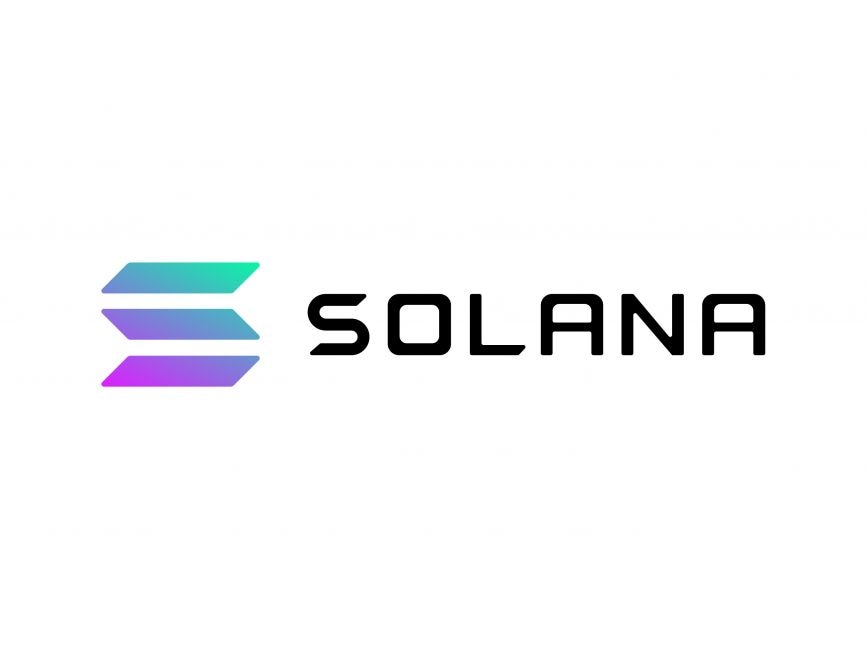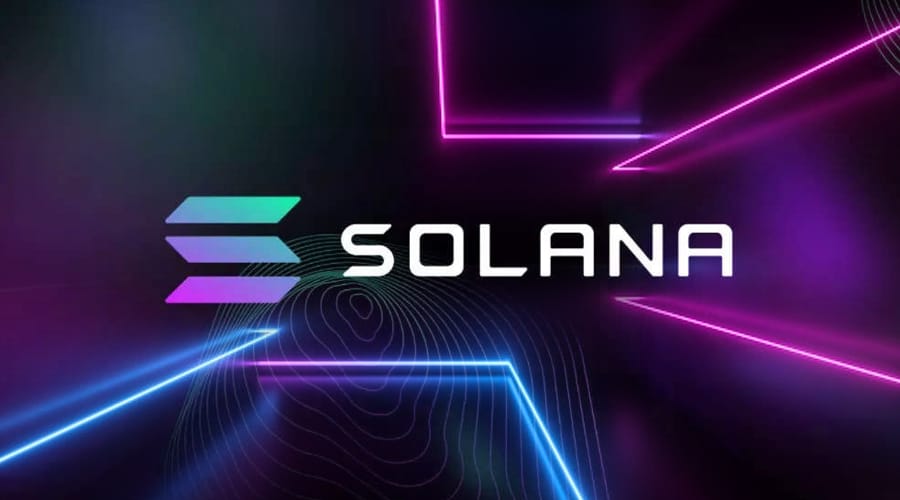Why Solana Is BETTER Than Ethereum
Solana is fast becoming a powerhouse of a blockchain with is speed and low transacation cost. While Ethereum has long reigned as a pioneering platform, offering innovative solutions for decentralized applications (dApps) and smart contracts. However, as the demand for scalability, efficiency, and user-friendliness continues to rise, a formidable competitor has emerged: Solana Network. In this blog, we’ll delve into the reasons why Solana stands out as a superior choice over Ethereum.
Scalability
Ethereum’s scalability limitations have been a longstanding challenge for the platform, particularly as the demand for decentralized applications and transactions continues to grow. With Ethereum’s current architecture relying on a Proof of Work (PoW) consensus mechanism, scalability issues have become more pronounced during periods of heightened network activity. This congestion results in slower transaction speeds and increased transaction fees, creating a less-than-optimal user experience for both developers and users alike. Solana’s approach to scalability, powered by its innovative Proof of History (PoH) mechanism, presents a compelling solution to these challenges. By utilizing PoH to establish a chronological order of events, Solana can process thousands of transactions per second with remarkable efficiency. This breakthrough technology significantly enhances the scalability of the Solana Network, allowing it to handle a vast volume of transactions without sacrificing speed or reliability.
Moreover, Solana’s scalable architecture opens up new possibilities for decentralized applications that require high throughput and real-time interactions. Developers can build applications on Solana that offer seamless user experiences and enhanced functionality, without being hindered by the scalability limitations inherent in other blockchain platforms. As the demand for decentralized finance (DeFi), non-fungible tokens (NFTs), and other blockchain-based applications continues to soar, Solana’s scalability becomes increasingly vital in supporting the growth and adoption of these innovative technologies.
Low Transaction Costs
The issue of high transaction costs on the Ethereum network has been a significant pain point for users and developers alike. Ethereum’s gas fees, which fluctuate based on network congestion and demand, can often be prohibitively expensive, especially for smaller transactions or those involving smart contracts with complex operations. This unpredictability makes it challenging for developers to estimate transaction costs accurately, leading to potential budgetary concerns and usability issues for end-users. In contrast, Solana’s fee model is designed to remain consistently low, regardless of network activity. This predictability and affordability make Solana an attractive option for developers seeking to build scalable applications without incurring exorbitant costs.
By offering low transaction costs, Solana empowers developers to create a wide range of decentralized applications that are accessible to users of all economic backgrounds. This democratization of access to blockchain technology not only fosters innovation but also promotes financial inclusion by reducing barriers to entry for individuals in underserved communities. As decentralized finance (DeFi) and other blockchain-based applications continue to evolve and expand, Solana’s low transaction costs will play a crucial role in driving widespread adoption and ensuring the long-term sustainability of the ecosystem.
Ecosystem Growth
While Ethereum boasts a vast ecosystem of dApps and developers, Solana’s ecosystem is rapidly expanding, fueled by its superior technical capabilities. Solana’s compatibility with Ethereum Virtual Machine (EVM) allows developers to seamlessly port their existing Ethereum-based projects to Solana, benefiting from its enhanced performance and scalability. Furthermore, Solana’s growing list of partnerships and developer incentives are attracting top talent to its platform, driving innovation and growth at an unprecedented pace.
The Solana ecosystem is characterized by its vibrant community of developers, validators, and enthusiasts who are actively contributing to its expansion and development. The Solana Foundation plays a crucial role in fostering collaboration and innovation within the ecosystem through educational initiatives, developer grants, and community-driven events. This strong sense of community support and engagement creates a fertile environment for experimentation and creativity, driving the evolution of decentralized applications and protocols on the Solana Network.
Developer-Friendly Infrastructure
 Solana offers developers a robust set of tools and infrastructure to streamline the development process. Its developer-friendly environment includes comprehensive documentation, a range of programming languages, and seamless integration with popular development frameworks. Additionally, Solana’s low-latency network enables real-time interactions, opening up new possibilities for interactive and immersive dApps that were previously impractical on Ethereum.
Solana offers developers a robust set of tools and infrastructure to streamline the development process. Its developer-friendly environment includes comprehensive documentation, a range of programming languages, and seamless integration with popular development frameworks. Additionally, Solana’s low-latency network enables real-time interactions, opening up new possibilities for interactive and immersive dApps that were previously impractical on Ethereum.
Developers can leverage Solana’s high-performance infrastructure to build scalable and efficient applications that meet the demands of modern users. The platform’s support for a wide range of programming languages and development frameworks allows developers to work with familiar tools and technologies, reducing the learning curve and accelerating the development process. Furthermore, Solana’s commitment to developer support and education ensures that developers have the resources they need to succeed, whether they are building their first decentralized application or scaling an existing project.
Environmental Impact
Ethereum’s consensus mechanism, Proof of Work (PoW), consumes a vast amount of energy, leading to concerns about its environmental sustainability. In contrast, Solana utilizes a more energy-efficient consensus mechanism known as Proof of Stake (PoS), which significantly reduces its carbon footprint. As environmental consciousness continues to grow, Solana’s eco-friendly approach may appeal to users and developers alike.
By transitioning to a Proof of Stake (PoS) consensus mechanism, Solana reduces its energy consumption and environmental impact while maintaining a high level of security and decentralization. This eco-friendly approach aligns with the growing demand for sustainable solutions in the blockchain industry and reflects Solana’s commitment to responsible innovation. As more users and developers prioritize environmental sustainability, Solana’s energy-efficient architecture may become a key differentiator in the competitive landscape of blockchain platforms.

Community Support
Solana has garnered strong support from its vibrant community of users, developers, and validators. The Solana Foundation actively engages with its community through educational initiatives, developer grants, and community-driven events, fostering collaboration and innovation within the ecosystem. This sense of camaraderie and shared vision propels Solana forward, driving adoption and advancing the platform’s capabilities.
The Solana community is characterized by its passion for blockchain technology and its commitment to building a decentralized future. Developers and users alike are actively involved in shaping the evolution of the Solana ecosystem, contributing code, providing feedback, and organizing community events. This collaborative spirit fosters a sense of ownership and belonging among community members, driving engagement and participation in the growth of the Solana Network.
Security and Reliability
Security is paramount in the world of blockchain, and Solana places a strong emphasis on ensuring the integrity and reliability of its network. By leveraging advanced cryptographic techniques and robust consensus mechanisms, Solana provides a secure environment for users to transact and interact with confidence. Furthermore, Solana’s Byzantine Fault Tolerance (BFT) consensus algorithm enhances network resilience, mitigating the risk of malicious attacks and ensuring continuous uptime.
Solana’s focus on security and reliability instills trust among users and developers, making it a preferred platform for building and deploying mission-critical applications. The platform’s strong track record of uptime and resilience under challenging conditions demonstrates its commitment to maintaining a secure and reliable infrastructure. As the blockchain landscape continues to evolve, Solana’s dedication to security and reliability will remain foundational pillars of its success.
In conclusion, while Ethereum has been a trailblazer in the realm of blockchain technology, Solana Network offers a compelling alternative that surpasses Ethereum in scalability, efficiency, and user experience. With its lightning-fast transaction speeds, low fees, developer-friendly infrastructure, and eco-friendly approach, Solana is poised to unlock a new era of decentralized innovation. As the blockchain landscape continues to evolve, Solana stands as a beacon of progress, empowering developers and users alike to build the decentralized future we envision.






![[LIVE] Engage2Earn: auspol follower rush](https://cdn.bulbapp.io/frontend/images/c1a761de-5ce9-4e9b-b5b3-dc009e60bfa8/1)



![[ℕ𝕖𝕧𝕖𝕣] 𝕊𝕖𝕝𝕝 𝕐𝕠𝕦𝕣 𝔹𝕚𝕥𝕔𝕠𝕚𝕟 - And Now What.... Pray To The God Of Hopium?](https://cdn.bulbapp.io/frontend/images/79e7827b-c644-4853-b048-a9601a8a8da7/1)





















